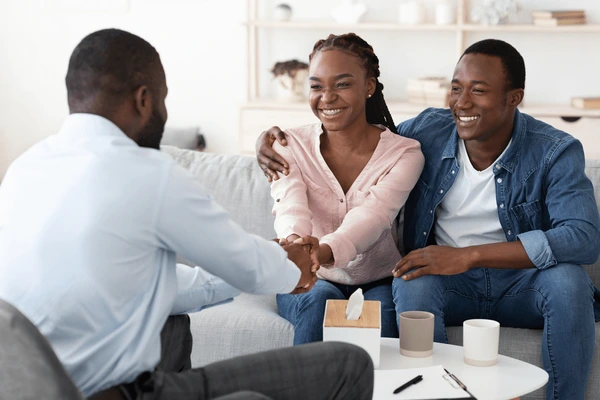Relationship
Why do you want to get married? – Part 3

We continue our exploration into the motivations behind the decision to say ‘I do’. In Parts 1 and 2 we have already discussed the influence of age (I’m growing old; therefore, I have to marry), societal pressures (My family, friends and society are putting pressure on me to marry), peer influence (My friends are all marrying; I am the only one who is not yet married), and the desire for a wedding ring (I need to wear a wedding ring too).
In Part 3, we delve into the dynamics of marrying someone you have been with for an extended period of time, the belief that marriage will resolve relationship issues, and the desire to host a big wedding party.
Whether you are joining us for the first time or have been follow ing along, let us continue exam ining the reasons some people get married. These include (stated in their own words):
5. We have been together for too long; I have to marry him (or her)
“We have been together for too long; I have to marry him (or her)” is one of the common reasons peo ple get married to their partners.
This will be a step in the right direction if only you have taken the time to establish whether or not your decision of getting married to that person is the best option for you and your future.
This is important because we have seen so many unhealthy and abusive relationships which have lasted for several years without the couples going their separate ways.
Imagine going ahead to marry the abuser simply because of the years of being together.
6. If I marry my partner, the problems in our relationship will stop
Know that marriage by itself will not make these problems you are experiencing in your relationship disappear.
In fact, these problems almost always get worse after marriage. If there are crucial issues which need to be addressed and resolved, do not sweep them under the carpet in the hopes that they will disappear after you get married.
That scarcely happens if it does at all. Getting married is not the antidote to problems in your relationship.
You need to talk about all im portant issues openly before mar riage. Neither the marriage ceremony nor the marriage itself will eliminate the issues or the effects of your disagreements.
If these issues seem too difficult or threatening to handle alone, then consider booking an appointment with a professional relationship and marriage counsellor, or pastor in certain cases.
Counsellor Prince & Associates Consult (CPAC) is also available to assist couples who are facing such issues in their relationships.
7. I want to host a big wedding reception and party as well
Although it is not evil or wrong to have a nice wedding reception and party; yet, you must under stand that marriage is far weightier than just a party or reception.
Parties are okay and even some times fun, but marriage is definite ly not just about a day’s event. Marriage is a completely different matter.
It has to do with the rest of your life; every day, all the time, even when you don’t feel like it. Marriage is a serious business. And hopefully it is sometimes fun too, but, truly, weddings have less to do with the marriage itself.
Relationship
What you should expect to learn in pre-marital counselling

- Pre-marital counselling involves couples coming together for joint therapy sessions
Many times, pre-marital counselling involves couples or partners coming together for joint therapy sessions. Working with a qualified marriage counsellor or therapist, you will learn skills to help improve your relationship as a couple.
At the same time, it is not all pre-marital counselling that leads to marriage. It is possible that certain discoveries (and major red flags) could emerge during the counselling sessions, and for that reason one of you may want to discontinue the marriage process so as to avoid any future regrets.
From my experience and professional practice, I would say that no matter how painful it is to break up a relationship prior to marriage; it is still far better to do that than to break up your marriage relationship.
The marriage breakup has more serious implications than any pain that could emerge from relationship break up.
In some instances, the specific topics to be explored and skills to be developed in your pre-marital counselling sessions will depend on your needs as a couple.
Despite this, I would give you all the topics and skills to expect your counsellor to take you through in order to have a happy and lasting relationship.
Even if you are not considering pre-marital counselling at the moment, you can still benefit from these skills and topics. They are also an excellent way to create depth in your conversations and build a solid healthy foundation in the early stages of your relationship.
Not in any specific order, I would like you to take note of these important skills and lessons you will learn in your sessions: 1 understanding the concept of marriage, 2 building a strong foundation for your marriage, 3 examining your expectations leading to your marriage, 4 undergoing medical tests and sometimes mental health assessment, 5 resolving conflicts together, 6 communicating openly and effectively, 7 taking decisions as a couple, 8. building a strong Christian home (if you’re Christians), 9 building transparency and trust, 10 knowing yourselves: your strengths and weaknesses—and how to improve them, 11 building commitment towards the marriage and each other, 12 accepting your unique roles and responsibilities in your marriage, 13 planning your future together, 14 sexual intimacy in marriage, 15 bearing and raising children, 16 understanding the concept of love, 17 the role of love languages in experiencing marital happiness, 18 managing your home finances, 19 defining your beliefs and values, 20 adjustments in marriage, 21 balancing love, work, and family life, 22 relating with your in-laws and third parties, 23 creating your unique marriage and family rituals, 24 engaging married couples to learn from them, 25 understanding divorce and what causes it, 26 Christian view on divorce, 27 preparing for your marriage ceremony, 28 planning for your honeymoon and how to maximise it, and finally, 29 making your first year of marriage count.
To be continued …
Source: Excerpts from ‘Preparing for a Happy and Fulfilling Marriage’ Book by REV. COUNSELOR PRINCE OFFEI (Psychotherapist and Marriage Therapist). https://counselorprinceass.wixsite.com/edu-counseling-psych
https://princeoffei22.wixsite. com/website-psychologist
https://princeoffei22.wixsite. com/website
COUNSELOR PRINCE & ASSOCIATES CONSULT (CPAC COUNSELLOR TRAINING INSTITUTE)
Relationship
Tips for creating healthy working relationships
We spend around a third of our lives at work. Our jobs and careers make a real impact on our overall levels of happiness. Having good work relationships will always make our jobs more enjoyable
Also, when we have great workplace relationships we will demonstrate cooperation, trust and fairness, activating the reward centre of our brains which encourages even more positive interactions.
Here are some tips to create healthy relationships at the workplace.
1. Focus on self-awareness
This means taking full responsibility for your words and actions, not letting your own negative emotions impact the people around us.
If you feel frustration or resentment towards others this will manifest in what you observe and the way you engage.
By developing your own Emotional Intelligence, you will become more adept at identifying and handling your emotions be able to recognise the needs of others.
Again, if you view colleagues with compassion and respect, you will improve your interactions and build strong working relationships.
What would happen if you stopped making judgments and embraced a positive appraisal of your co-workers? If we saw difference as something valuable that could be harnessed and actually enhance your perception and understanding of those around you? Your vibe will always attract your tribe.
2. Be open and honest
A good relationships depend on open, honest communication. Whether you are sending emails or meeting face-to-face or on video calls, the more effectively you communicate with those around you, the better you will connect. It is important to identify the nature of your relationships with others.
What is it that we need and what do our colleagues need from us? Once you know the fundamentals of what you need you can be clear with communicating and better understanding each other’s requirements.
3. Practice active listening
Good people skills are essential. How good are you at collaborating, communicating and managing challenge? People respond better to those who truly listen to what they have to say. By practicing active listening, you will talk less and understand colleagues more and you will quickly become trustworthy and have more successful interactions.
One key skill you can forget when listening is the power of a good question. Active listening is engaging in what you hear, asking questions such as ‘What would you like to happen?’ How can I help you address that? Shows you listen and you care.
4. Avoid bad people skills
Good people skills mean avoiding the bad people skills. Gossip and negativity can ruin any workplace relationships. If you are experiencing challenge with someone in your group, talk to them directly and kindly about the problem, be prepared to listen attentively and objectively.
Gossiping or colluding with other colleagues will only aggravate the issues, accelerating mistrust and animosity.
5. Give praise and feedback
Everyone wants to feel that their work is appreciated and to feel truly valued. Genuinely complimenting the work and actions of those around you is a great way to build relationships.
Be honest, precise and authentic when delivering praise. Thank you or a gentle word of encouragement can make all the difference to someone’s day. These positive interactions can have a ripple effect and create a much happier and more successful workplace







